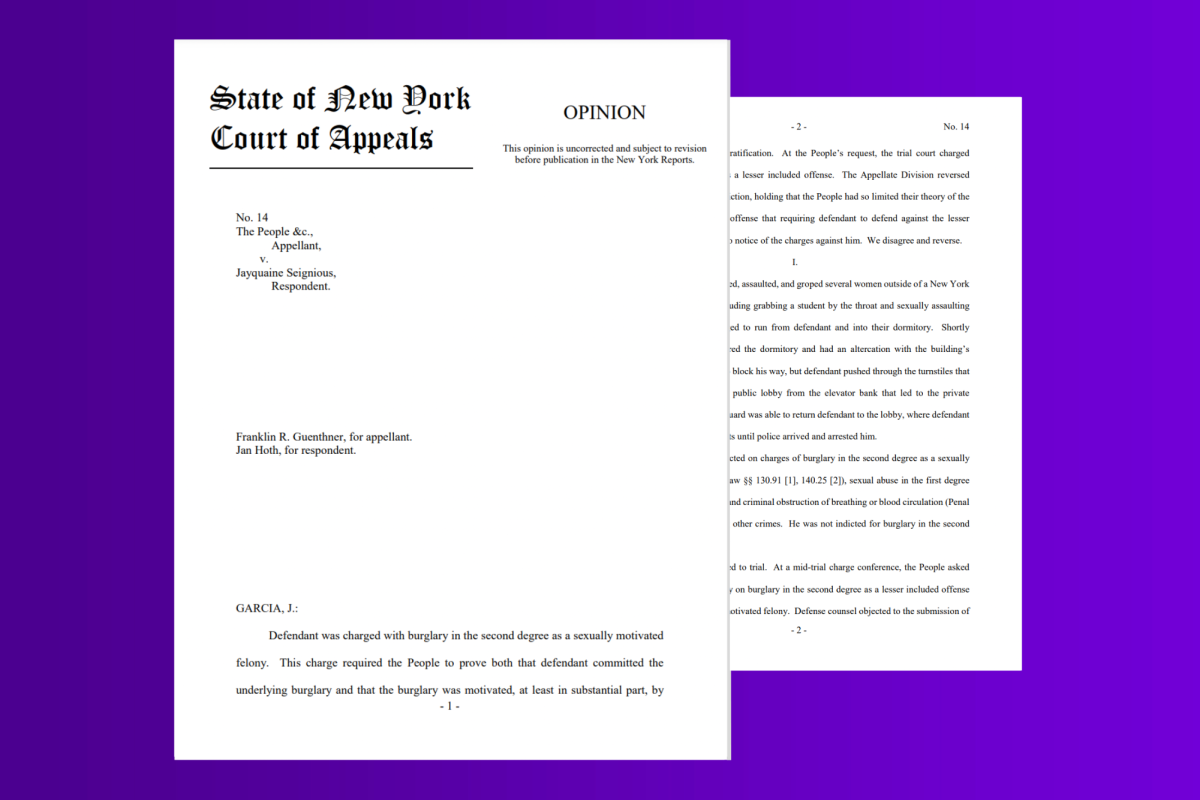Content warning: This article contains mentions of sexual assault.
The New York State Court of Appeals unanimously reinstated a burglary conviction for an incident that took place at Lipton Hall in October 2016, where an individual had “confronted, assaulted and groped several women,” including NYU students, outside the residence hall before entering its lobby.
The second-degree burglary charge increases Seignious’ sentence from seven to 13 years. The decision overturned a previous court ruling on the case, which had reversed the burglary conviction under the argument that prosecutors had violated defendant Jayquaine Seignious’ right to know what charges he would have to defend himself against.
According to the court’s opinion, Seignious was convicted after “grabbing a student by the throat and sexually assaulting her,” and then following the students after they ran into the residence hall. In the Lipton lobby, Seignious “had an altercation” with a security guard who “tried to block his way.” He then “pushed through the turnstiles” and the security guard returned him to the lobby, where Seignious “continued to harass students until police arrived and arrested him.”
Seignious’ original indictment included charges of first-degree sexual abuse, second-degree burglary as a sexually motivated felony and criminal obstruction of breathing or blood circulation. However, prosecutors later asked that Seignious also be charged with second-degree burglary as a lesser offense included as part of one of the charges in the indictment.
Seignious’ lawyer claimed that the second-degree burglary charge did not count as an included lesser offense, but as an additional charge that Seignious had not been told he would have to defend against. The Appellate Division Court dismissed the second-degree burglary charge in 2022, saying it was “improperly charged.”
In a written statement to WSN, Jan Hoth, an attorney for Seignious, said she was “very disappointed in the result.”
“Prosecutors use it to give a chance for a conviction even if they fail to prove the highest count, but it also means the jury has a choice to decline the higher count in favor of the lesser included offense,” David Bloomfield, a professor of education leadership, law and policy at Brooklyn College and the City University of New York Graduate Center, said in a written statement to WSN.
A university spokesperson was not immediately able to respond to a request for comment.
Update, March 7: This article has been updated with a statement from Siegnious’s attorney.
Contact Dharma Niles at [email protected].























































































































































